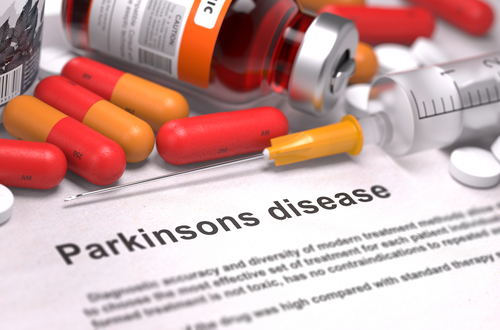Data from Studies on PKAN and ‘Off’ Episodes in Parkinson’s Presented at 2016 Congress
Written by |

Retrophin presented new data from a physician-initiated study of RE-024, the company’s investigational replacement therapy for pantothenate kinase-associated neurodegeneration (PKAN), a rare movement disorder. The findings, from treatment in two adults with PKAN, suggest the treatment is both safe and effective, with patients showing clinical improvement and stable disease progression.
These results, as well as complementary data from two Phase 3 studies (on APL-130277, a treatment being developed by Cynapsus, and CVT-301, from Acorda) in Parkinson’s patients, were presented at the recent 20th International Congress of Parkinson’s Disease and Movement Disorders in Berlin.
RE-024 was tested by physicians treating two brothers, who were diagnosed with PKAN as children (the disease is genetic) and developed parkinsonism, a condition similar to Parkinson’s disease and whose symptoms can include tremors, slow movement, muscle stiffness and difficulty speaking. Both also had dystonia, dysarthria, and showed extreme impulsivity. The brothers, ages 24 and 29 at treatment start, had lost the ability to walk independently, and the older sibling required a feeding tube.
Results showed the drug was safe and was well-tolerated by the patients, and meaningful improvements in mobility and stabilized disease progression were reported over 47 weeks of treatment. Improvements were measured using the Movement Disorder Society-Unified Parkinson’s Disease Rating Scale (MDS-UPDRS), a widely used means of assessing daily life activities and neurological impairment in patients.
No treatment-associated adverse effects were reported, and both men chose to continue taking to RE-024 after the 47 weeks.
“These data add to the growing body of evidence demonstrating the potential of RE-024 in patients with PKAN and support our plans to initiate an efficacy study during the second half of 2016,” Alvin Shih, executive vice president and head of research & development for Retrophin, said in a news release.
Cynapsus presented seven posters at the congress, covering aspects related to “off” episodes in Parkinson’s patients and reporting findings from its soon-to-finish Phase 3 study of APL-130277, a sublingual thin film being evaluated to treat “off” episodes. Findings discussed in the presentations included: over 30 percent of patients and caregivers report “off” episodes in the first year after a Parkinson’s diagnosis, and another 53 percent indicated they began two to three years post-diagnosis; patients are aware of “off” episodes; the APL-130277 dose needed to transition from “off” to “on” cannot be predicted by disease severity, a trial finding; and trial data support starting patients on lower doses.
“These data presented at ICPDMD complement Cynapsus’ positive results shared at prior medical meetings and demonstrate an encouraging clinical profile, and further support the potential opportunity that APL-130277 may have in effectively treating OFF episodes in patients with Parkinson’s disease,” Albert Agro, chief medical officer of Cynapsus, said in a news release. “We expect to share additional clinical data from our pivotal Phase 3 efficacy trial by the end of the third quarter of 2016.”
Acorda also presented data on CVT-301 (levodopa inhalation powder), a self-administered treatment for “off” episodes that is also being evaluated in its Phase 3 clinical trial, expected to finish in September.
Based on trial results, both companies are planning to file applications with the U.S. Food and Drug Administration for the treatments to be approved as therapy options for Parkinson’s “off” episodes.
The Michael J. Fox Foundation for Parkinson’s Research helped to support early development work in these two investigational therapies.





